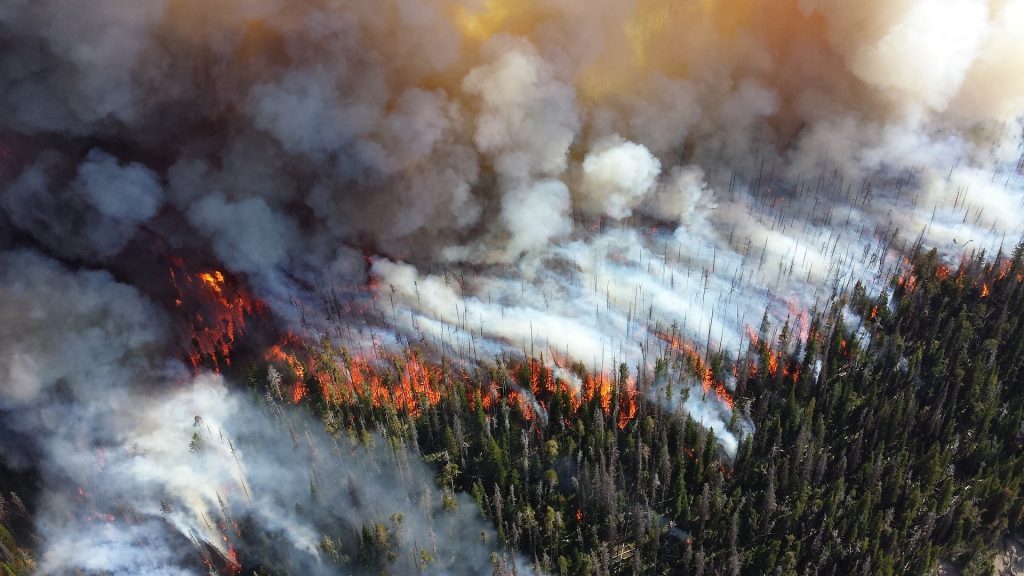
The RHSRNbc is planning a virtual two-day research symposium in November 2020 on ‘Planning for Rural Health Services and Resilient Communities in BC in Response to Climate Change and Ecosystem Disruption’. During this symposium we will explore how climate change and ecosystem disruption impacts BC’s rural, remote and Indigenous communities, building resilience in response to climate change and ecosystem disruption.
Symposium Goals and Learning Objectives

Symposium Goals
To create a learning community in exploring and understanding the effects of ecosystem disruption on the health of rural, remote and Indigenous communities in BC.
Learning Objectives
1) To explore building resilient communities in the face of climate change and ecosystem disruption.
2) To identify the short-and-long-term goals of strengthening the resiliency of rural communities and adapting rural health services by identifying research questions and changes in our normal practices that will contribute to sustainable rural communities and health systems.
3)To build strategies to distribute the outcomes of the symposium and implement recommendations and/or accountability frameworks that develop from the event.
Background

Climate Change
The rising of global temperatures is most likely thought to be the result of human industrial activities, such as the increased use of transportation, operation of factories, and the burning of fossil fuels. This increase causes major changes in our weather pattern, such as longer periods of droughts and unusually hotter summers and winters. Between 1948 and 2016, Canada has experienced a 1.7oC increase in its average annual temperature, with greater increases in Northern regions [1]. Higher temperatures can also increase the melting of glaciers that increase sea levels, which in turn can cause heavier rainfalls and floods. Projected data shows that BC may experience more than a 30% decrease in precipitation during the summer, and drier weathers will increase the chances of drought and severe forest fires[2]. Other climate risks in BC include seasonal water shortage, ocean acidification, severe flooding and storm surges.The changes in temperature and weather patterns from climate change can lead to disruption in our ecosystem. This includes loss of animal and plant species, loss of natural resources, morbidity, injury diseases or hospitalization, psychological impacts, loss of life, loss of economic productivity and cost to the provincial government[4]. Disease-causing pests and viruses such as the mountain pine beetles may also become more active with the changing ecosystem services[3]. Many regions of BC are already experiencing these disruptions, and it is predicted that rural and remote regions will have a greater impact than the urban counterparts.
Ecosystem-Mediated Health Effects
Climate change and ecosystem disruption not only affects our environment but will increase health risks for British Columbians. Such examples include a higher incidence of skin cancer from stronger UV exposure, and lung diseases from air pollution and forest fires. In addition, the emergence of viruses and bacteria from ecosystem disruption can also introduce new infectious diseases. This makes climate change not only environmental but also a public health concern. COVID-19 is a recent example of an emerging disease caused by human-induced ecosystem disruption that exposes humans to new viruses from wild animals. It is in our interest to address these rising health concerns, particularly in rural and remote B.C., to ultimately build healthier communities.We believe that collaborations between key stakeholders of the pentagram partnership (i.e. communities, health administrators, health professionals, policymakers, and academic institutions) are important, and the Symposium is intended to provide a safe and encouraging environment to share each other’s knowledge and experiences. The RHSRNbc will continue to support the partnerships that stem from the Symposium, to promote the health and resiliency of B.C.’s rural and remote communities during the progression of climate change and ecosystem disruption.If you would like to learn more about this topic, visit our Resource page!